Research Area 1: Brain and Cognitive Sciences
Cognitive functions are orchestrated by neurons and glial cells in different regions of the brain, and represent one of the major issues in neurodegenerative diseases and brain disorders. Our pioneering research into the functions of the nervous system and the underlying causes of neurological diseases tackles real-world health problems. Graduate students will join our expert research teams to investigate the molecular events that support cognitive functions, including the formation and retraction of synapses, dendrites and axons. Students will be trained to use zebrafish, Xenopus, rat, and mouse as genetic model organisms to investigate neurodevelopment, neuromuscular junction formation, physiological functions of neurons and glial cells, neuroinflammation, and pathological mechanisms that lead to neurodegeneration and neurocognitive disorders. The other training we offer includes research skills to assess the value of deep brain stimulation, neuroprotective effects from exercise and diet, and the potential utility of stem cells in neuroregeneration.
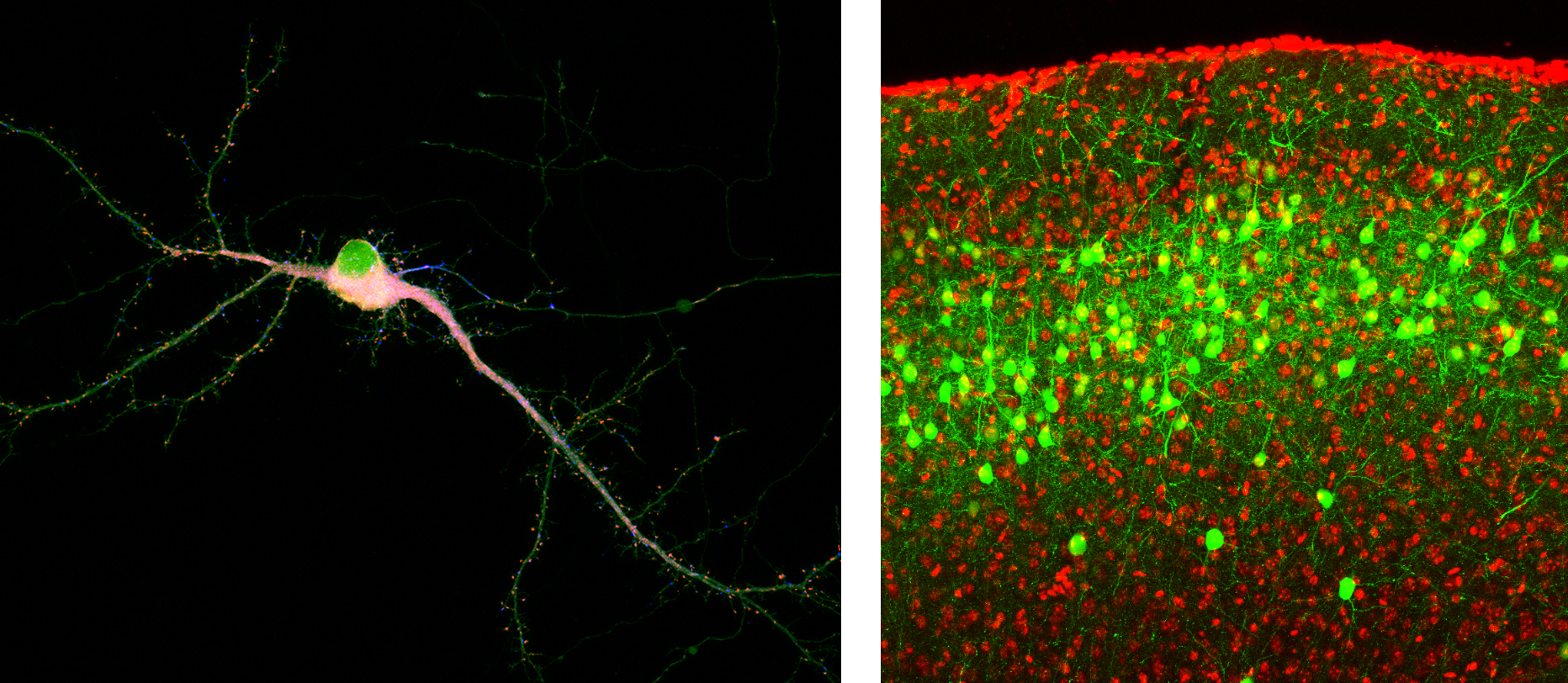
| Supervisor(s) | Research Interest |
|---|---|
|
Neuroimmunology; Alzheimer’s disease; Microglia; Dementia; Neurodegeneration |
|
|
Neural development; Modelling neurological diseases by cellular reprogramming; Molecular mechanisms of melanoma metastasis and drug resistance |
|
|
Hypoxia physiology |
|
|
Functional protein aggregation; Functional amyloids; Electron-cryo microscopy; Memory persistence; Cellular memory |
|
|
Synthetic biology; Vaccines for infectious diseases and cancers; Biological pattern formation; Intracellular transport |
|
|
DNA repair; Genome stability; DNA damage response; Cell cycle checkpoint control |
|
|
Protein design; Stem cell engineering; Rejuvenation and Ageing; Modelling diseases with stem cells |
|
|
Effects of systemic stresses on the blood-brain barrier (BBB) and the brain |
|
|
Two-photon in vivo imaging; Learning and memory; Synaptic plasticity; Cognitive neuroscience; Psychiatric diseases |
|
|
Cellular, molecular, and developmental neurobiology; Muscle physiology and pathophysiology |
|
|
Behavioural, cellular and molecular neuroscience; Neuromodulation in psychiatric and neurodegenerative disorders |
|
|
Human genetics; Bioinformatics and functional genomics; Alzheimer’s disease |
Research Area 2: Cell Signalling and Cancer Biology
Cell signalling defines the means via which cells sense and respond to internal and external cues, and is fundamental to cell proliferation and survival, cell-cell communication, and cell differentiation and organismal development. For instance, when cells detect changes in nutrient levels within the microenvironment, a cascade of signalling events ensues to maintain cell and tissue homeostasis. Our graduate programme in Cell Signalling and Cancer Biology provides comprehensive and highly interdisciplinary training in understanding how cellular signalling alterations can lead to various human diseases including cancer. Our faculty members have expertise in a wide range of areas including mechanisms of diseases, preclinical disease models, genomics and epigenetics, cancer stem cells, DNA damage repair and DNA replication, molecular virology, cancer drug responses, tumour microenvironment, tumour-immune cell interactions, metabolism, cancer drug discovery, medicinal chemistry.
Our research is highly translational. Recent breakthroughs include, for examples, the identification of novel druggable molecular targets in cancers such as that of liver, ovary and skin; discovery of new druggable proteins by chemoproteomics or new covalent drug lead compounds as cancer therapeutics. Students will work in state-of-the-art laboratories to make high-impact discoveries for improving disease treatments and prevention.
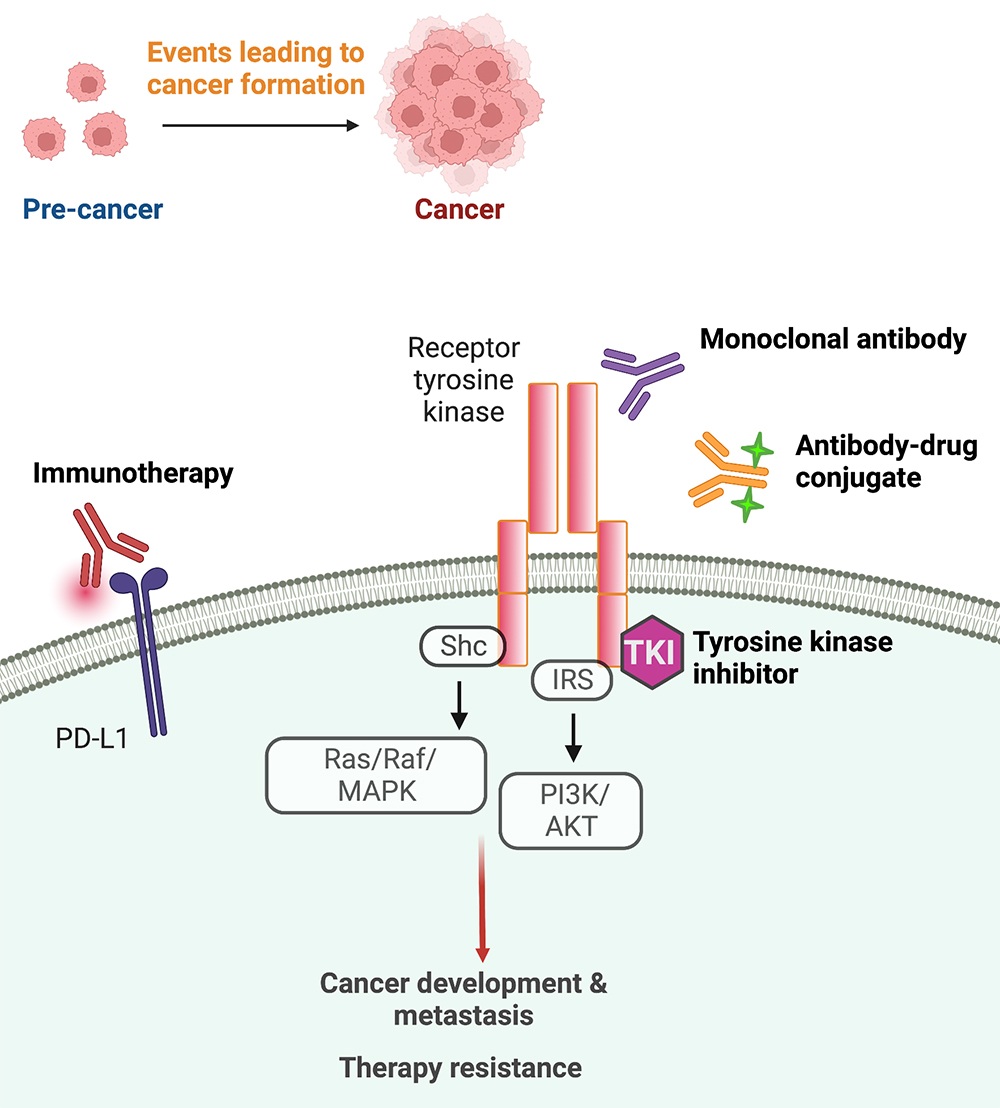
| Supervisor(s) | Research Interest |
|---|---|
|
Chemical biology; Epigenetics; Proteomics |
|
|
Molecular virology and innate immunity; Molecular biology and transcriptional regulation |
|
|
Cancer driver mutations; Cancer signalling; Drug sensitivity and resistance mechanisms |
|
|
Neural development; Modelling neurological diseases by cellular reprogramming; Molecular mechanisms of melanoma metastasis and drug resistance |
|
|
Centrosome biogenesis; Rho signalling; Chromosome instability and cancer metastasis |
|
|
Chemical biology; Cancer therapy; Redox biology; Molecular probes; Drug targets and off-targets |
|
|
Hypoxia physiology |
|
|
Cell signalling in development and disease; Genetic and molecular basis of skeletal disorders |
|
|
Tissue development and regeneration; Mouse genetics and human organoids for disease modelling |
|
|
DNA repair; Genome stability; DNA damage response; Cell cycle checkpoint control |
|
|
Multi-omics analysis of cancers and rare diseases; Computational biology |
|
|
Molecular virology; Innate antiviral response; Viral oncogenesis |
|
|
Systemic tumour-host interactions; Paraneoplastic syndromes |
|
|
RNA biology and genome engineering |
|
|
Stem cells; Genetics and genomics; Developmental Biology; Haematopoiesis and immune cell functions; Cancer cell killers; Cell-based therapies |
|
|
Epigenetic regulation; Chromatin structures and dynamics; Structural biology; Cancer biology |
|
|
Cancer stemness, cancer stem cells; Tumor microenvironment; Cancer immunology; Drug resistance; Hepatocellular carcinoma; 3D organoid; Preclinical models; Translational cancer biology |
|
|
Epigenetics and genome instability; Structural biology |
|
|
Cancer genomics; Bayesian modelling; Deep learning; Bioinformatics |
|
|
Organoids and Stem Cells; Cell Engineering; Immunology; Cancer Immunotherapy |
|
|
Genome editing; Protein engineering; Synthetic biology; Combinatorial genetics; Drug target discovery; Disease biology |
|
|
Cancer metabolism; Basic cancer research; Bioinformatics; Organoids |
|
|
Cancer genomics; Mutational processes; Epigenetics; Bioinformatics; Proteomics |
|
|
Molecular virology; Antiviral immunity; Viral oncogenesis; Vaccines and drugs for infectious diseases |
|
|
Cell adhesion and cytoskeleton regulation; Podosome and invadopodium; Mechanobiology; Phosphatidylinositol signalling; Fluorescence microscopy |
|
|
Chromatin architectural alterations in stem cell differentiation; Ageing and development |
Research Area 3: Genomics and Biomedical Data Sciences
Technological advances in genomics, proteomics, metabolomics, imaging, and access to a wide variety of digital health data in electronic health records, enable a big data approach to scientific discovery and digital health innovation. Our School has strong expertise in developing and applying state-of-the-art statistical and computational methods to harness these big data to address a variety of biomedical problems and drive novel discoveries in healthcare research. Key research areas include the following:
- Genomic landscapes and mutational signatures in cancers and rare diseases
- Single cell transcriptomic or spatial transcriptomic data to identify cell populations and heterogeneity
- Bayesian modeling of complex biological data
- Altered gut microbiome in diseases
- Metabolomics and proteomics to identify novel disease biomarkers
- Use of wearable devices, smartphones and artificial intelligence in modern digital healthcare
Graduates of the Genomics and Biomedical Data Sciences programme will be well qualified for careers in data science, software development, artificial intelligence, machine learning and deep learning algorithms, etc.

| Supervisor(s) | Research Interest |
|---|---|
|
Skeletal and matrix biology; Animal models of diseases; Stem cells and regeneration |
|
|
Bioinformatics; Artificial intelligence; Medical big data; Digital health technology; Metagenomics; Single cell genomics |
|
|
Bioinformatics; Machine learning; Single-cell genomics; Spatial transcriptomics; Somatic mutations and evolution |
|
|
Multi-omics analysis of cancers and rare diseases; Computational biology |
|
|
Stem cells; Genetics and genomics; Developmental biology; Hematopoiesis and immune cell functions; Cancer cell killers; Cell-based therapies |
|
|
Cancer genomics; Bayesian modelling; Deep learning; Bioinformatics |
|
|
Human genetics; Bioinformatics and functional genomics; Alzheimer’s disease |
|
|
Genome editing; Protein engineering; Synthetic biology; Combinatorial genetics; Drug target discovery; Disease biology |
|
|
Cancer genomics; Mutational processes; Epigenetics; Bioinformatics; Proteomics |
Research Area 4: Stem Cell, Molecular and Developmental Genetics
Our research in developmental biology provides invaluable insights into the molecular events that underlie the diverse cellular changes during embryogenesis, which is tightly linked to stem cell biology. A totipotent stem cell undergoes well-defined cell divisions and progressive lineage differentiation to specific cell types in the body. Gene mutations in stem cells can result in developmental defects and diseases. Thus, our Stem Cell, Molecular and Developmental Genetics programme harnesses stem cell biology, developmental biology and functional genetics to address complex questions in disease mechanism and the control of stem cell differentiation and cell functions, with an ultimate goal to contribute to the development of regenerative medicine, organ transplantation and genomic medicine for the benefit of humankind. Specific areas of focus include musculoskeletal, neurological, metabolic, and ageing defects. Students will develop cutting-edge research skills in cell reprogramming, design of stem cell inducer, directed evolution in mammalian cells, novel stem cell platforms and organoid systems, model organisms (e.g. Planarian, chick embryo, genetically engineered mice) and engineering immunology.
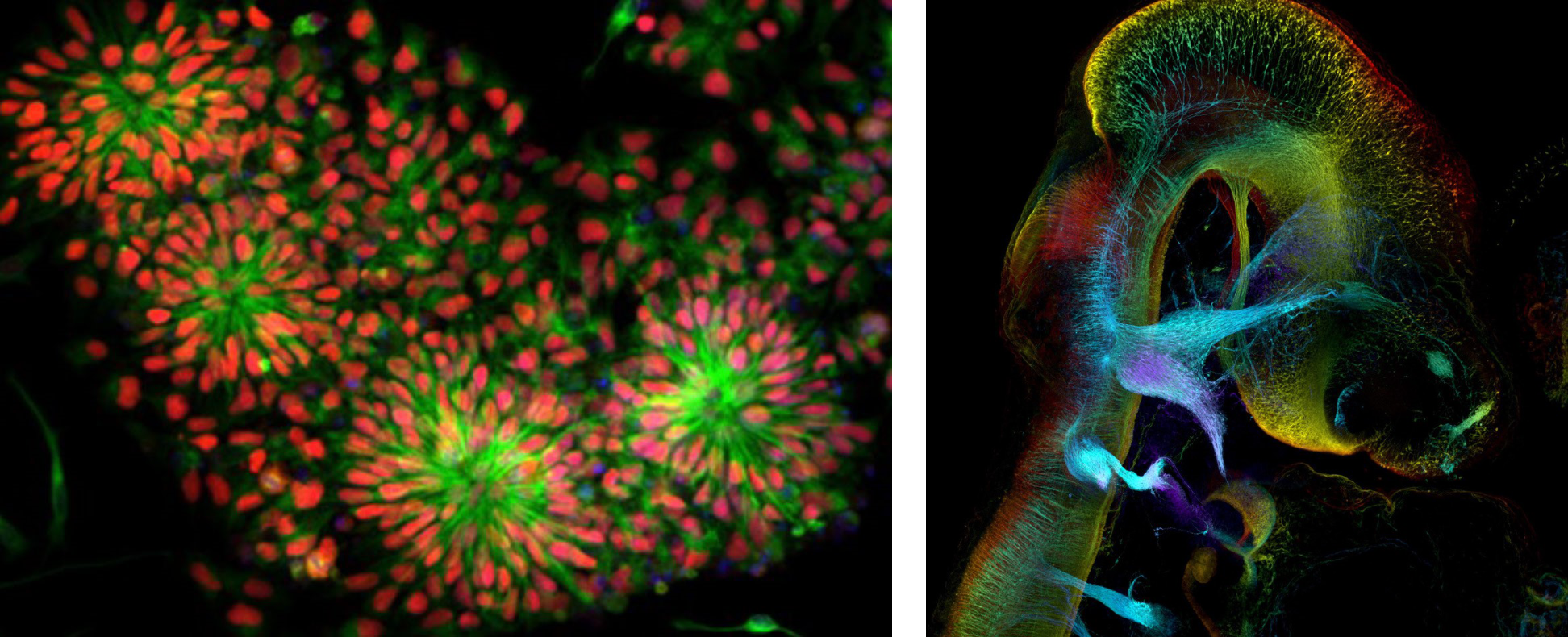
| Supervisor(s) | Research Interest |
|---|---|
|
Skeletal and matrix biology; Animal models of diseases; Stem cells and regeneration |
|
|
Neural development; Modelling neurological diseases by cellular reprogramming; Molecular mechanisms of melanoma metastasis and drug resistance |
|
|
Cell signalling in development and disease; Genetic and molecular basis of skeletal disorders |
|
|
Tissue development and regeneration; Mouse genetics and human organoids for disease modelling |
|
|
Synthetic biology; Vaccines for infectious diseases and cancers; Biological pattern formation; Intracellular transport |
|
|
Protein design; Stem cell engineering; Rejuvenation and Ageing; Modelling diseases with stem cells |
|
|
Systemic stress-induced stem cell dysregulation |
|
|
Cellular, molecular, and developmental neurobiology; Muscle physiology and pathophysiology |
|
|
Metabolic reprogramming of T cells in chronic inflammatory diseases |
|
|
Stem cells; Genetics and genomics; Developmental Biology; Haematopoiesis and immune cell functions; Cancer cell killers; Cell-based therapies |
|
|
Human genetics; Bioinformatics and functional genomics; Alzheimer’s disease |
|
|
Organoids and Stem Cells; Cell Engineering; Immunology; Cancer Immunotherapy |
|
|
Chromatin architectural alterations in stem cell differentiation; Ageing and development |
Research Area 5: Structural, Chemical and Synthetic Biology
A transdisciplinary understanding of biomolecule function at the atomic level provides insights into the molecular biology underlying all of life and medicine. Our Structural, Chemical and Synthetic Biology programme encompasses studies of structures and dynamics of molecular complexes (structural biology), perturbation of biological systems (chemical biology), and re-engineering biomolecules by rational design and evolution (synthetic biology). Our elite faculty members have deep expertise in these areas - integrating structural biology with functional proteomics, nucleic acid evolution with translational technology, and artificial biological circuits with genome engineering. With cutting-edge technologies, this programme provides students with innovative learning experiences and tools, including CRISPR, CombiSEAL, CombiGEM, machine learning-assisted protein engineering, high-throughput screening, high-throughput sequencing, nucleic acid nanotechnology, X-ray crystallography and cryo-electron microscopy. These approaches uncover new ways to better understand biology and medicine, and allow translational angles across disease therapeutics, diagnostics and bioengineering.
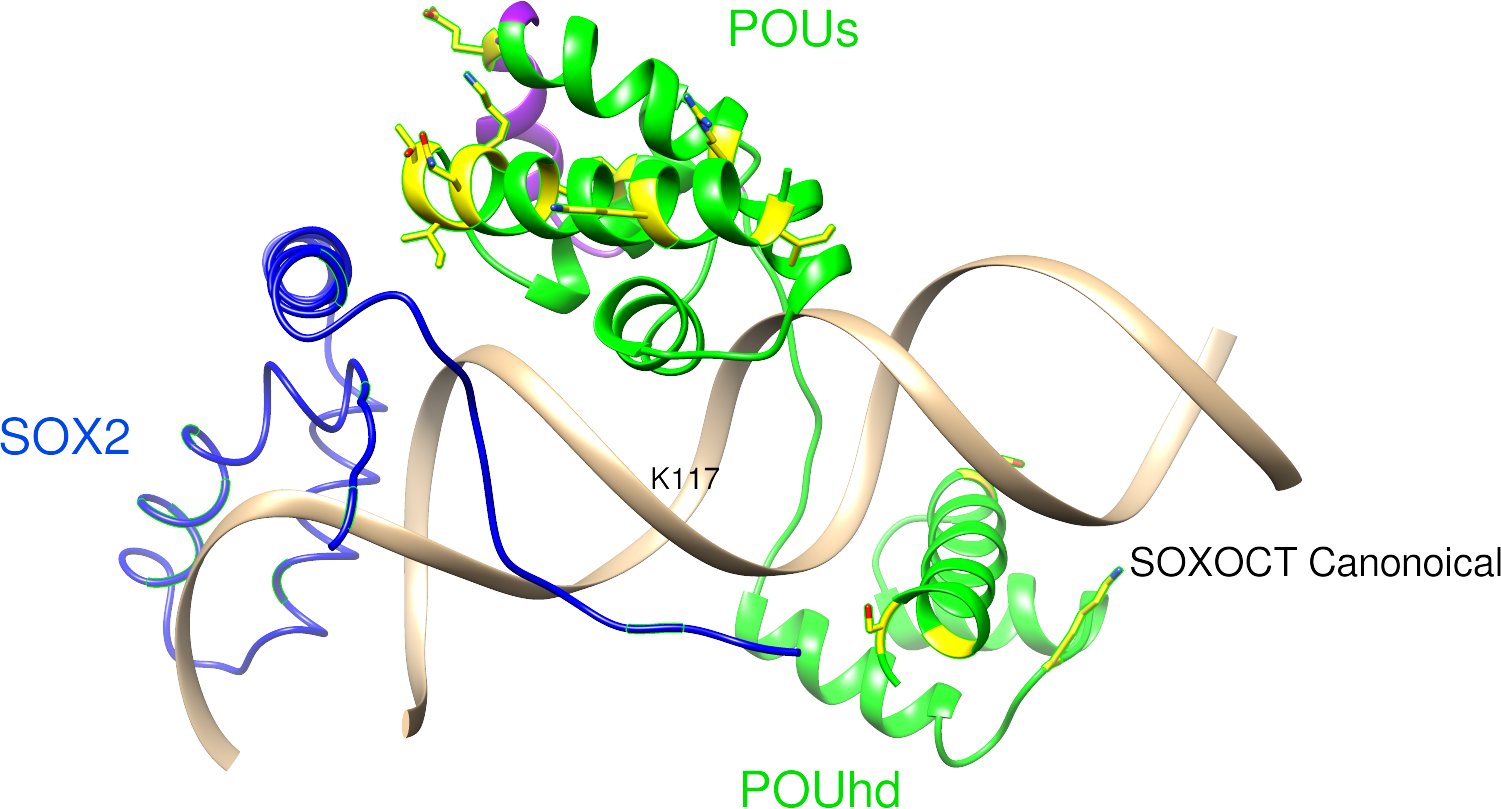
| Supervisor(s) | Research Interest |
|---|---|
|
Chemical biology; Epigenetics; Proteomics |
|
|
Chemical biology; Cancer therapy; Redox biology; Molecular probes; Drug targets and off-targets |
|
|
Functional protein aggregation; Functional amyloids; Electron-cryo microscopy; Memory persistence; Cellular memory |
|
|
Synthetic biology; Vaccines for infectious diseases and cancers; Biological pattern formation; Intracellular transport |
|
|
Protein design; Stem cell engineering; Rejuvenation and Ageing; Modelling diseases with stem cells |
|
|
RNA biology and genome engineering |
|
|
Stem cells; Genetics and genomics; Developmental Biology; Haematopoiesis and immune cell functions; Cancer cell killers; Cell-based therapies |
|
|
Epigenetic regulation; Chromatin structures and dynamics; Structural biology; Cancer biology |
|
|
Structural biology, Cryo-EM and cryo-electron tomography; Virology; Macromolecule asssembly |
|
|
Epigenetics and genome instability; Structural biology |
|
|
Nucleic acid nanotechnology and chemical biology |
|
|
Integrating biochemistry, chemical biology and single-molecule microscopy to dissect the function and organisation of microtubules |
|
|
Genome editing; Protein engineering; Synthetic biology; Combinatorial genetics; Drug target discovery; Disease biology |
|
|
Cancer genomics; Mutational processes; Epigenetics; Bioinformatics; Proteomics |
|
|
Cell adhesion and cytoskeleton regulation; Podosome and invadopodium; Mechanobiology; Phosphatidylinositol signalling; Fluorescence microscopy |
|
|
Epigenetic regulations on chromatin structures in disease, single particle cryo-EM; Biochemistry and biophysics; Protein engineering |
Find Out More
Information on selected projects or research areas: Interested candidates are advised to email the relevant supervisors. Please enclose with your email: (i) your CV, (ii) a brief description of your research interest and experience, and (iii) two reference letters (reference letters not required for HKUMed UG students seeking MRes[Med] or URIS projects)
Research studies enquiries specific to the Department/School’s research should be directed to the Departmental Research Postgraduate Advisor: Dr LWT Cheung ( lydiacwt@hku.hk)
Information on the research programme, funding support and admission requirements could be found on the RPg Admissions website.
General admission enquiries should be directed to rpgmed@hku.hk.
Meet Our Students
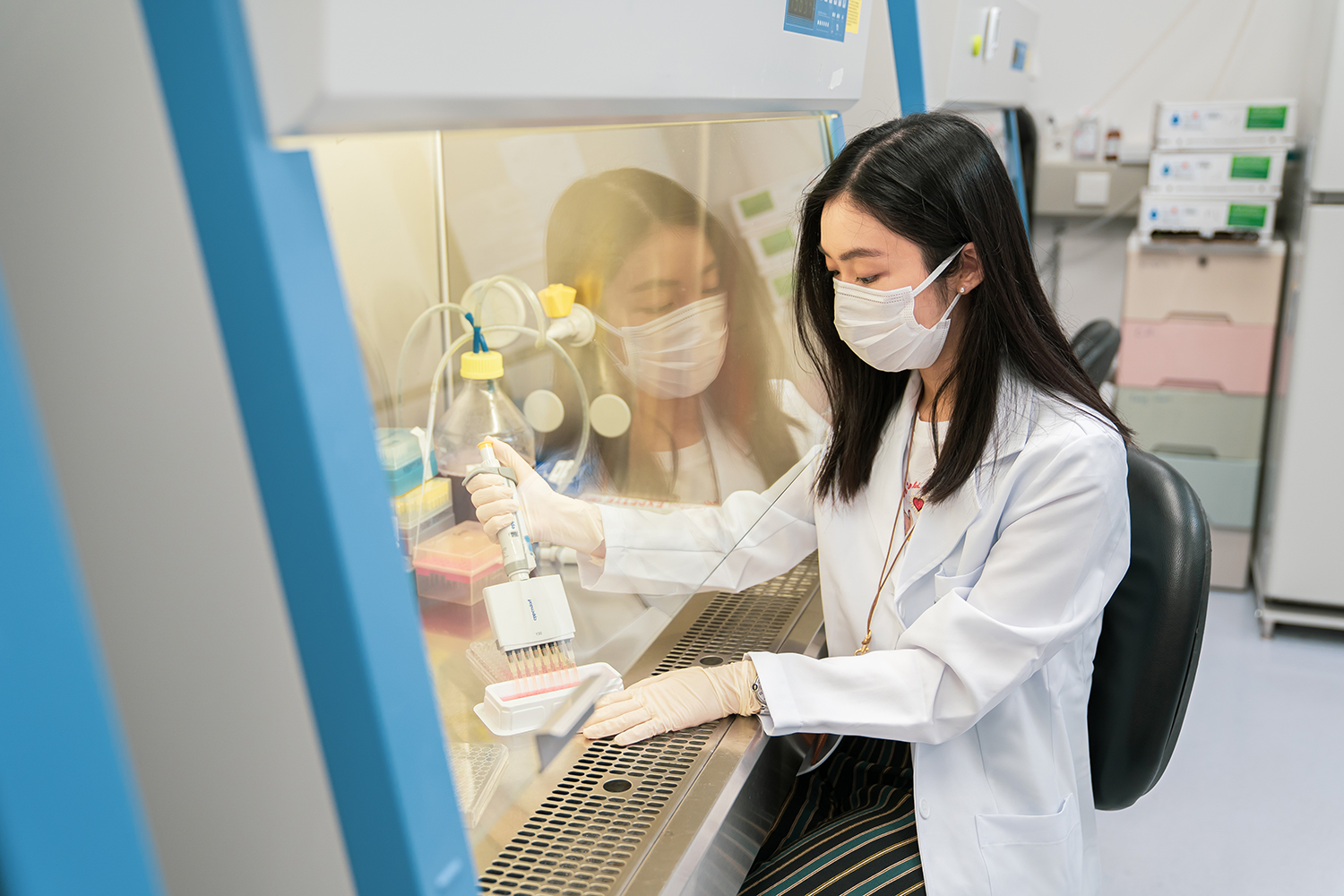
Jane LOONG
Place of Origin: Hong Kong
Progress: PhD Year 4
Primary supervisor: Dr SKY Ma
“You'll go through lots of failures throughout your studies, but it's not the end of the world when things don't work out.”
Now in the process of finishing up her thesis, Jane took some time to reflect on her PhD journey.
"Communication between labmates is very important when it comes to exchanging ideas about my current research topic. I like to chat with them to ask for advice whenever I am stuck with my project or experiment…it is through these discussions that we are able to identify ideal solutions.”
Jane's study highlights the therapeutic potential of FUT1 to treat nutrient-deprived tumours and hopefully provides a rationale for the future design of small molecule inhibitors against FUT1 and treat tumours by eradicating the cancer stemness subset.
June 2021
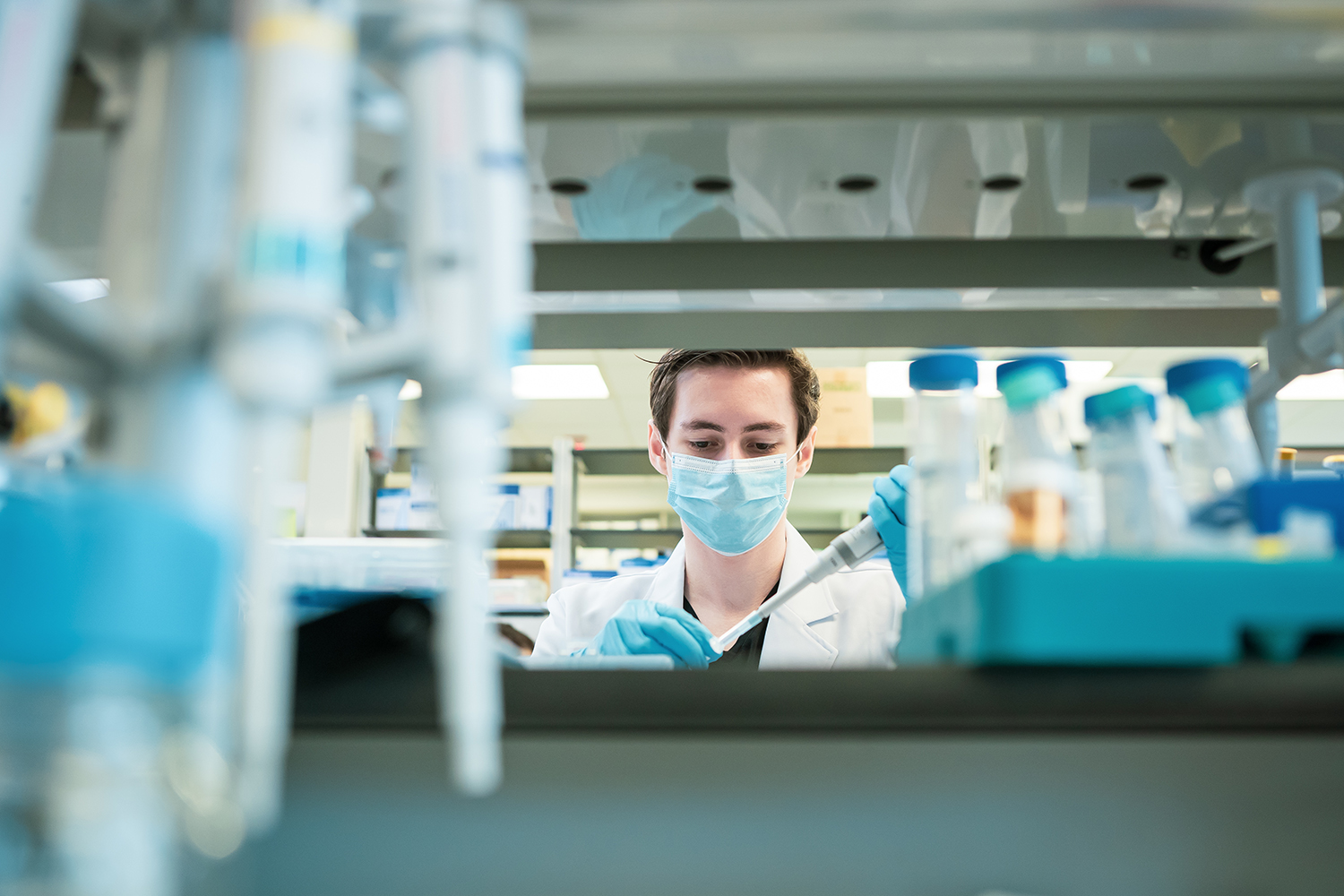
Victor GRAY
Place of Origin: France
Progress: PhD Year 2
Primary supervisor: Dr HGS Ling
As a budding researcher and academic, Victor Gray believes in the importance of developing a good relationship with one’s supervisor, as they often have much wisdom to impart on how to deal with stress and future planning, "They have been through what you are currently going through, so they naturally have lots of advice to give you”.
With an interest in immunology, he looked forward to fine-tuning his research skills under Dr Ling Guang Sheng; “She is someone who has shown expertise in the field for a number of years back in my home country, so I'm very excited to be a part of this transition of immunology research at HKUMed as our team expands”.
Victor now hopes to study in greater detail how various environmental conditions affect the metabolic properties of immune cells, and identify metabolic pathways which may be targeted in order to boost immune responses.
January 2021

Jessie HO
Place of Origin: Hong Kong
Progress: PhD Year 2
Supervisor: Dr R Jauch
Living up to the mantra of ‘work-life balance’, Jessie remained active in a plethora of hobbies before the pandemic, “I am an avid tennis player; I began playing Quidditch with Hongkong Hydras; I practiced and performed with my band and the Lap-Chee Acapella Team at the Residential Colleges; I also made sure that Saturday nights and Sunday mornings were reserved for spending time with my family.”
Though many postgraduate students often find themselves buried in work, Jessie believes in the importance of healthily managing stress, especially when pursuing academia. “There have been times where I have felt overwhelmed, which can translate into technical errors and lead to unusable data, so these hobbies have been critical in helping me reduce my stress to a manageable level.” This is all the more important, given that “high-quality research takes time to plan and execute”.
December 2020
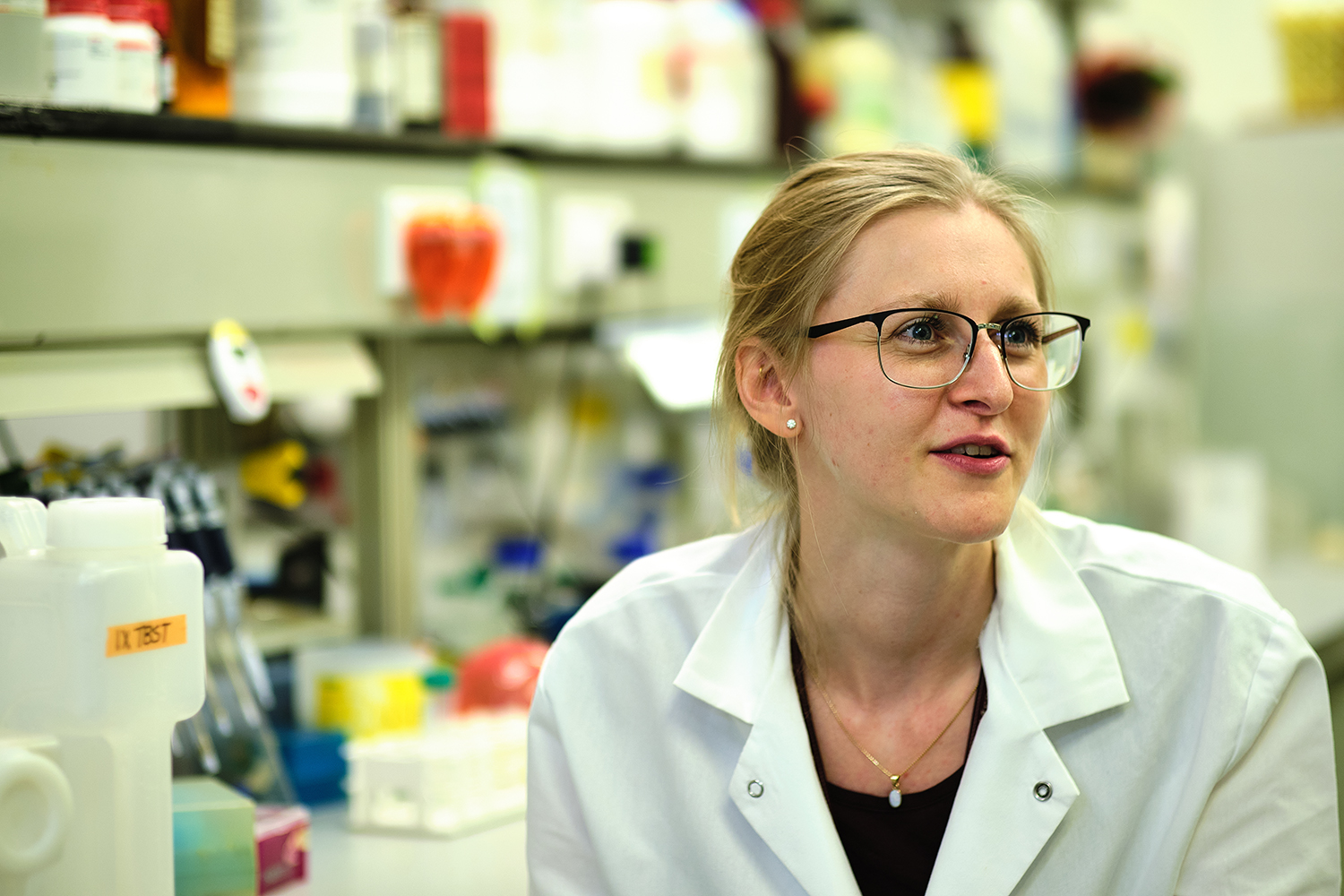
Maja SØRENSEN
Place of Origin: Denmark
Progress: PhD Year 3
Supervisor: Dr RCC Chang
"The drive here in Hong Kong is so different…everything works at a much faster pace here compared to back home”.
For Maja, the initial culture shock of working in Hong Kong left an impactful impression, "It's faster, everything just works so much faster research-wise - you produce so many more results daily, compared to back home…but also the research is quite interesting here".
Luckily, she's taken a liking to the fast-paced culture here as it pushes advancement in her current research. She hopes that her work could take her one step closer into achieving her goal of improving life quality for patients with Parkinson's Disease. "It always motivates me if I can make life a bit better or easier for other people. So, if we could help slow down a degenerative disease and its spread in the brain…that would make me feel better about the value of my work".
June 2020
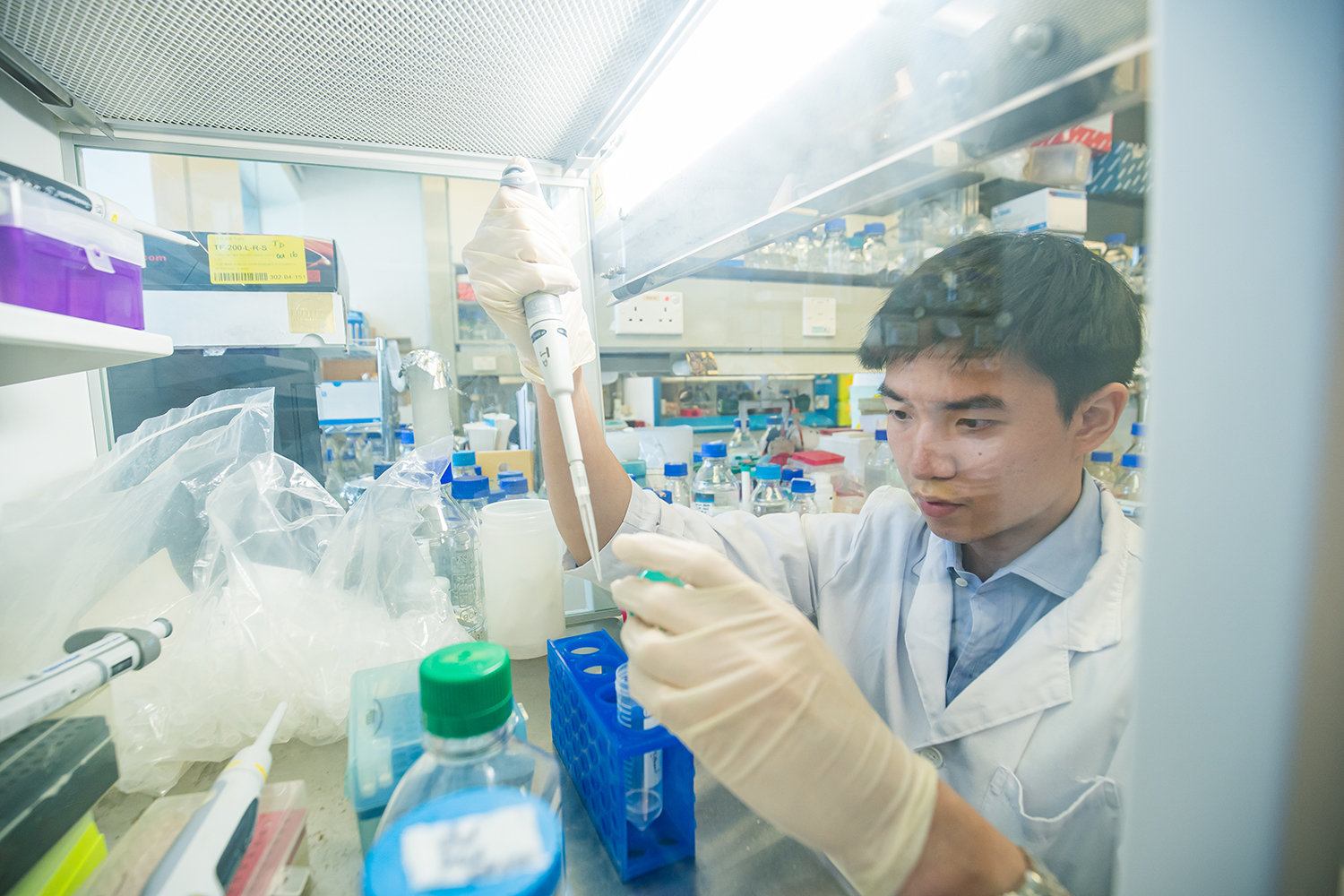
Zurn KUWENTRAI
Place of Origin: Thailand
Progress: PhD Year 3
Supervisor: Professor JD Huang
For Zurn, his postgraduate studies at HKU marks his first foray into the world of academia which is full of challenges but also many new opportunities. “I have had very little research experience [so] my PhD research is very new to me…essentially I'm learning everything in one go during my first year."
Zurn values being able to pursue his PhD on his own terms, without the pressures of preconceived expectations, “My goals are slightly different from others; I don’t feel the absolute need to publish, or apply to be a Principle Investigator in the future. I just want to learn as much as I can and the experience here itself is…what my goal is, and I'm already getting it every single day I walk into the lab."
Zurn hopes his focus on mRNA therapeutics will allow greater accessibility to treatment options for patients, “Less developed countries find it very difficult to afford protein therapies, so we are currently developing ways to make our mRNA therapies equally good so that one day, it can be in the market as well."
June 2020
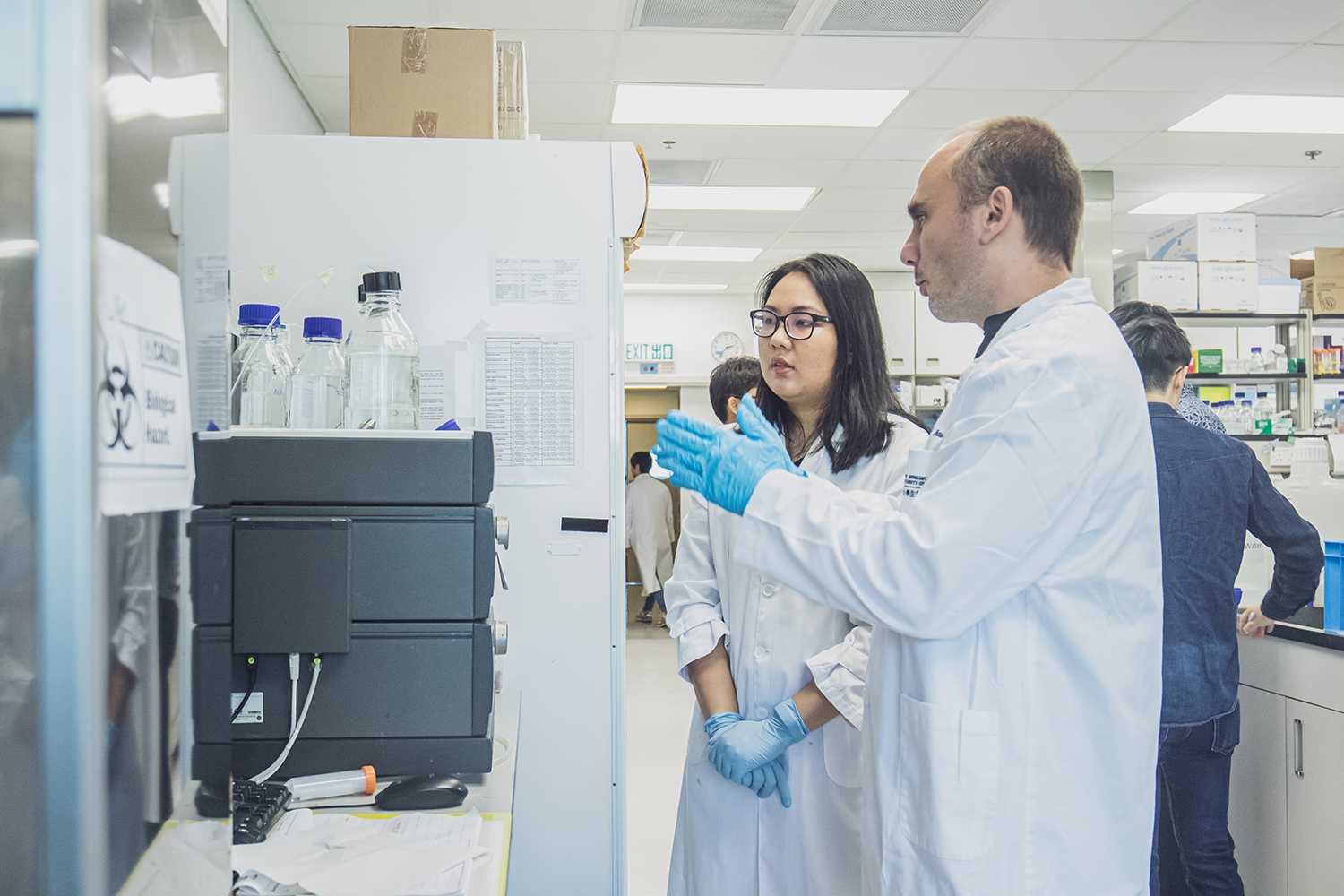
Daisy TAN
Place of Origin: Philippines
Progress: PhD Year 1
Supervisor: Dr R Jauch
“We all find it quite funny hearing each other’s stories from our respective home countries – something like having to buy your own reagents and distilled water like I did for my experiments is unheard of to my lab mates!”
Daisy reckons that working in a diverse group of passionate researchers at her lab has been an asset to her research experience here, not only because they get to trade stories and anecdotes, but also because there’s such diversity in their skillsets too.
“We have individual meetings with each other to catch up on our respective projects, so even though we’re working on separate tasks, we can always seek the individual expertise of one another […] part of the culture here is to troubleshoot together, and learn from your fellow lab mate who may have stronger foundations in other areas of academia.
November 2019
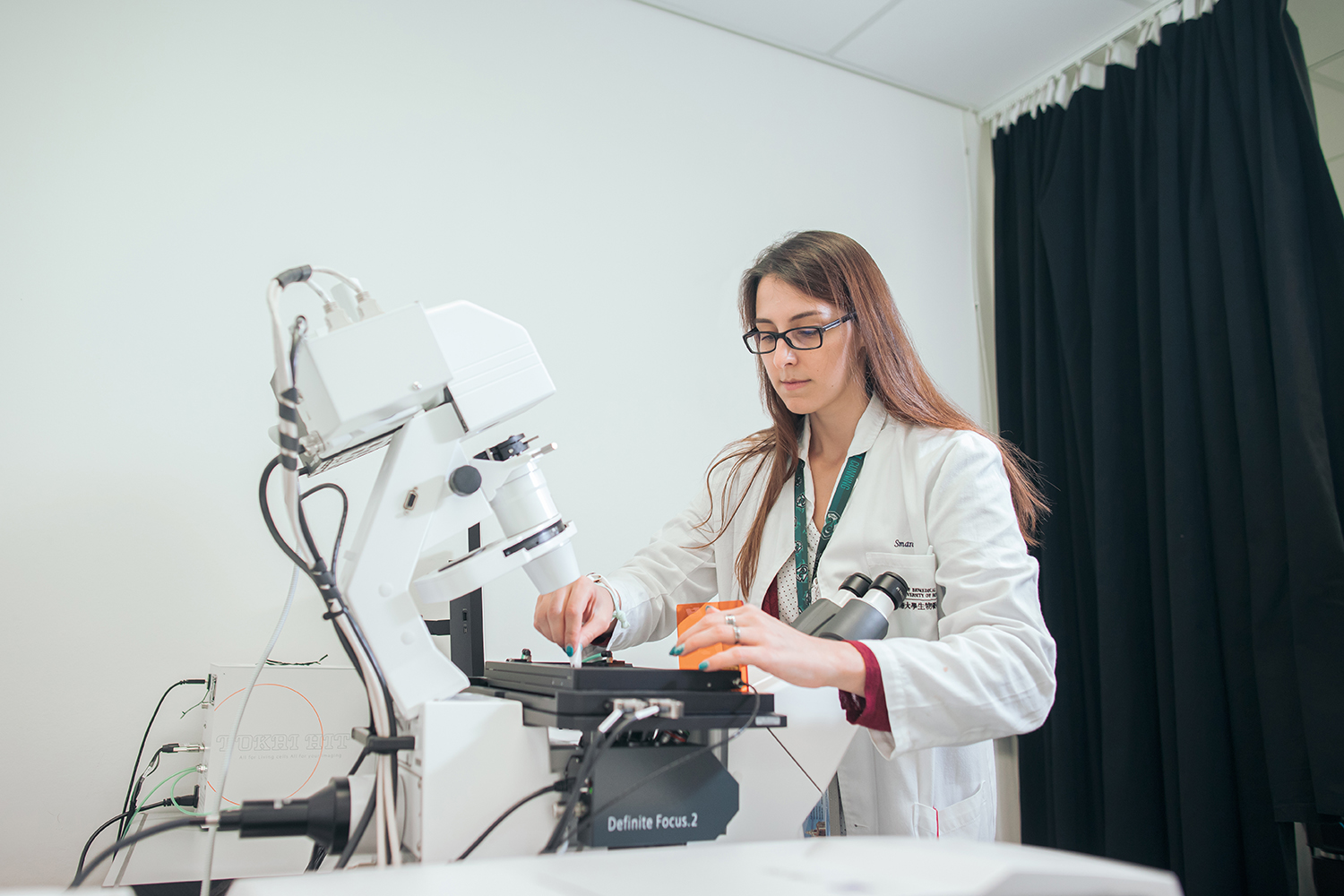
Smaranda BADEA
Place of Origin: Romania
Progress: PhD Year 4
Supervisor: Professor JD Huang
Smaranda spends the bulk of her time at the Faculty Core Facility, where she taps into the multi-million dollar advanced imaging and cell sorting technologies for her research.
Smara, who will soon be graduating with a PhD degree in Neuroscience, has been investigating the way our body responds to injuries in the nervous system.
“Our nervous system tends to react very strongly when it is damaged by injury. What we can do is try to modify how it responds, using particular pathways to calm it down, so that it will prioritise repair over the typical response that would sustain the damage,” says Smara, who hopes the findings from her research might be applied to treating other conditions such as multiple sclerosis and spinal cord injuries.
July 2019

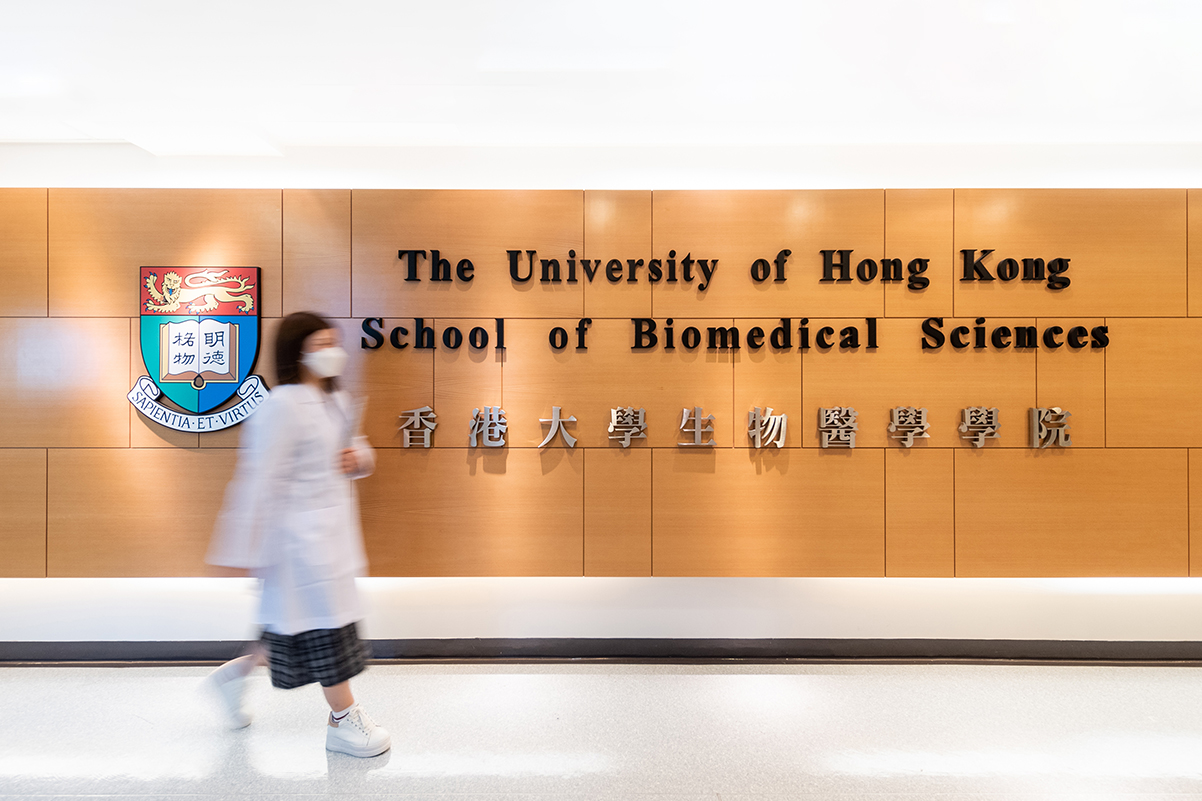
Follow HKUMed